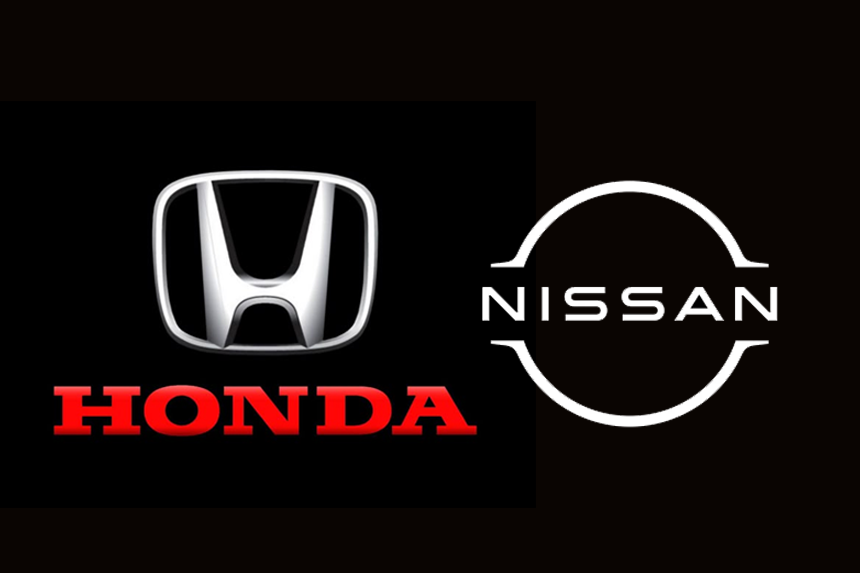After both firms rejected a multi-billion dollar tie-off, the widely awaited Nissan Honda Merger negotiations came to an abrupt end. The Japanese carmakers, alongside junior partner Mitsubishi, had aimed to combine their businesses in an effort to counter competition from rival firms, particularly in China. However, the Nissan Honda Merger that would have created an auto group worth $60 billion (£48 billion) has fallen through.
- What merger's potential was there?
- What Caused the Disagreement Between Honda and Nissan?
- In what ways might political and cultural elements influence the merger?
- What Are the Consequences for Both Companies?
- What Role Will Taiwan's Foxconn Play in Nissan's Future?
- How Will Nissan's Future Deals Be Managed?
Should the merger have been successful, it would have ranked fourth in the world based on vehicle sales, behind just Toyota, Volkswagen, and Hyundai.
Honda and Nissan assured each other they would keep their cooperation in the electric vehicle market even with the collapse.
What merger's potential was there?
The Nissan Honda Merger was considered as vital for Nissan, which has battled with falling sales and substantial leadership turbulence in recent years. It would have provided much-needed respite for the firm, which was formerly Japan’s second-largest carmaker but has been plagued by challenges since the arrest of its former CEO Carlos Ghosn in late 2018.
Ghosn was let go after claims of financial misbehavior, which he disputes. His remarkable escape from Japan, carried in a music equipment box to Lebanon, has only added to Nissan’s troubles. The corporation still has an uphill fight despite efforts at recovery including a worldwide cost-cutting program and salary cut for the present CEO.
On the other hand, Honda entered the merger negotiations in a strong position. The brand continues to be popular globally, producing and selling more cars than Nissan, making it the dominating partner in the discussions.
What Caused the Disagreement Between Honda and Nissan?
The major stumbling block that led to the collapse of the talks was the disagreement over the role Nissan would play in the proposed Nissan Honda Merger. Specifically, the firms could not reach a resolution on whether Nissan would be an equal partner or a subsidiary within the new structure.
Jesper Koll from Monex Group, a Japanese online trading platform provider, pointed out that the pressure in Japan to make the merger appear as an equal partnership was great. “Having somebody leading this would seem almost offensive to the other party,” he said. For both sides, the view of inequality would have been challenging as Honda could have to face the responsibility of saving a firm under crisis.
In what ways might political and cultural elements influence the merger?
The failure of the negotiations was much influenced by political and cultural sensitivity as well. In Japan, mergers are generally investigated thoroughly to ensure that they don’t anger the parties involved. The idea of a strong partner controlling the merger might have caused conflicts since the weaker partner could feel excluded.
As one analyst suggested, Honda could have ended up carrying the weight of bailing out a “ugly duckling” in Nissan, which would have significantly harmed the brand’s reputation.
What Are the Consequences for Both Companies?
With the demise of the Nissan Honda Merger, both Honda and Nissan now face an unclear future. Apart from the difficulties presented by Chinese manufacturers’ rivalry, both businesses are also dealing with the possibility of tariffs in important markets including the United States.
The pressure on worldwide automakers has grown as Chinese electric vehicle companies like BYD have emerged. Honda’s CEO, Toshihiro Mibe, has earlier declared, “We must build up capabilities to fight them, including the current emerging forces, by 2030. Otherwise, we will suffer.” This comment emphasizes how urgently businesses felt they needed to come up with answers for the rising competitive threat.
What Role Will Taiwan's Foxconn Play in Nissan's Future?
Nissan is now seeking other possible mates after the Nissan Honda Merger failed. A possible ally has surfaced in Taiwan’s Foxconn, a major player in the fabrication of modern computer chips. Foxconn has expressed interest in buying Nissan shares and collaborating with the French car giant Renault, which holds a 36% stake in Nissan after rescuing the company from bankruptcy in 1999.
Foxconn chairman Young Liu indicated that the firm was keen on pursuing a cooperation agreement with Renault, signaling a potential shift in Nissan’s strategic direction.
How Will Nissan's Future Deals Be Managed?
Analysts argue that any future acquisition for Nissan will depend on leadership capable of identifying and executing synergies between firms, while also negotiating the difficult political and cultural terrain of such a cooperation.
“N Nissan will need to find leadership that can execute synergies across both companies, as well as manage the political and cultural challenges,” said one analyst, stressing that good leadership is essential for every future cooperation.
Notwithstanding the setback, it will be interesting to see how Nissan moves in the next months since it keeps looking for strategies to restore stability and challenge internationally.








